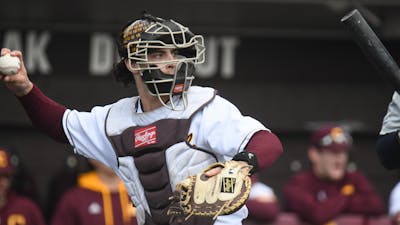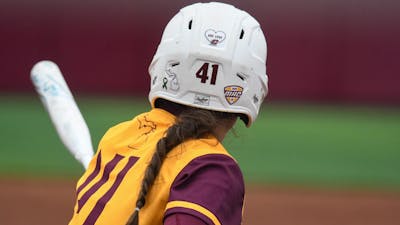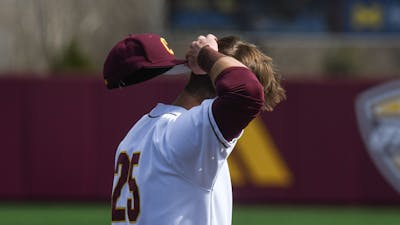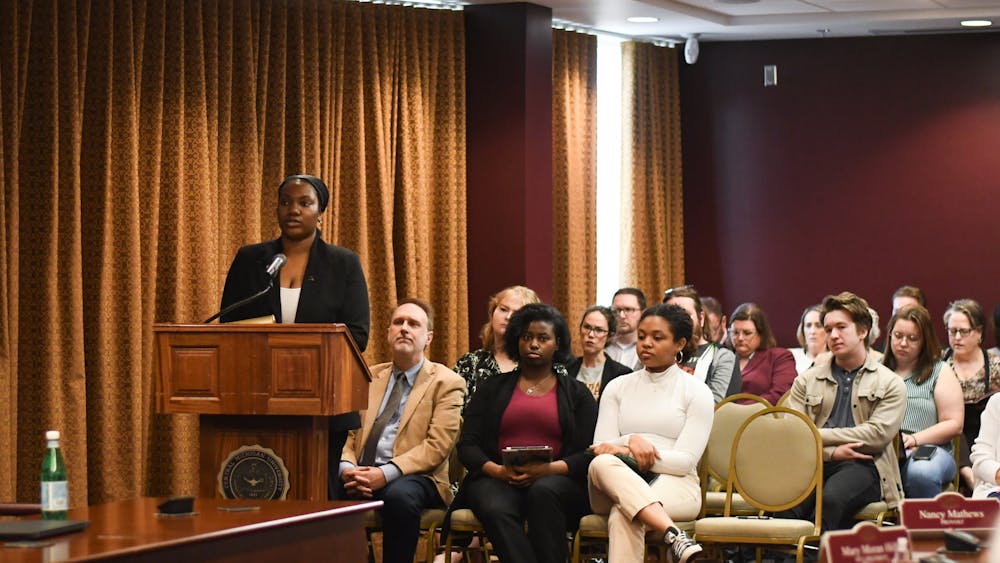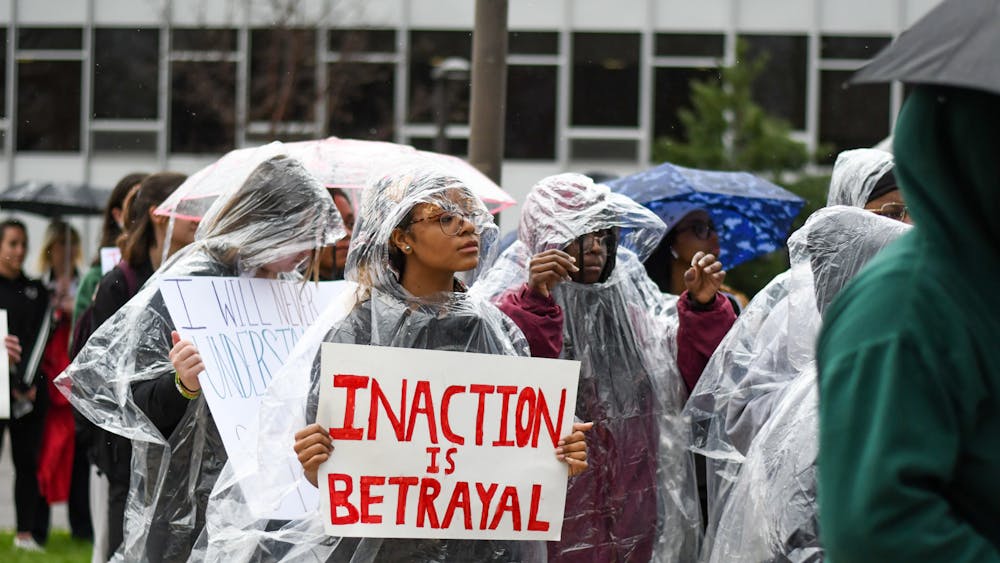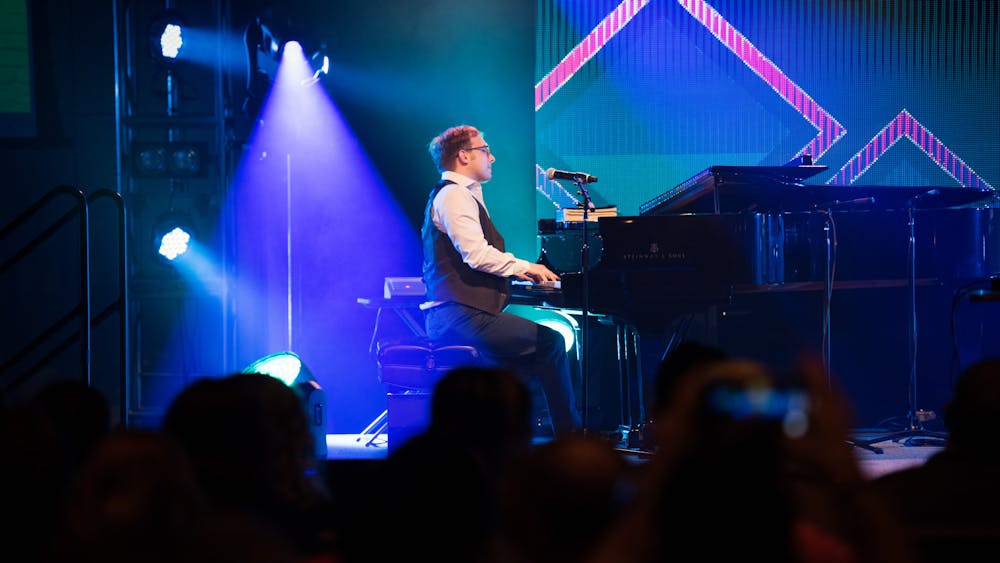Outdoor practices and virtual tours: How Heather Oesterle is adapting during the coronavirus pandemic

Central Michigan coach Heather Oesterle coaches during a timeout against Bowling Green Feb. 15 at McGuirk Arena.
Heather Oesterle usually doesn’t worry about the weather when she schedules basketball practice.
Nowadays, the second-year coach is forced to think twice.
Due to the coronavirus pandemic, gyms have been closed and social distancing procedures have been strictly enforced. Those regulations have taken team workouts in McGuirk Arena out of the realm of possibility.
Because of these guidelines, the Central Michigan women's basketball team has taken practice outside. Instead of running from baseline to baseline, they're running in lanes on the track behind Kelly/Shorts Stadium. They dribble on pavement and shoot at hoops with the Gus Macker logo emblazoned on the backboard.
If that's not strange enough, the Chippewas recently had four practices rained out in a one-week span.
This would be inconceivable in a normal year — But this is shaping up to be anything but a normal year.
Practicing outdoors is just one of several adjustments that Oesterle has needed to make in preparation for the upcoming season. Whether it be virtual tours, setbacks in freshman development or simply not knowing when the season will start, she continues to adapt.
With not even tomorrow's practice guaranteed, Oesterle is forced to focus on the moment as her team prepares to defend its fourth straight Mid-American Conference title.
“It’s been a little different,” Oesterle said. “As an indoor sport, you don’t ever worry about the weather. I’m like, constantly checking my phone, ‘Is it gonna be windy? Is it gonna be rainy?’”
The art of the virtual tour
When Oesterle isn't checking the weather on her phone, chances are she's looking for the next Reyna Frost. Or Presley Hudson. Or Molly Davis. As the recruiting coordinator under the great Sue Guevara, she knows a thing or two about bringing top prospects to Mount Pleasant.
She loves to showcase CMU's campus to prospective student-athletes and take advantage of the in-person opportunity to see if certain recruits are good enough to play for the MAC powerhouse.
As a result of the pandemic, the NCAA has extended its recruiting dead period banning campus visits until Sept. 30.
“It was hard not having our team here this summer but its extra hard trying to watch a kid on video to see if they’re good enough to play here,” Oesterle said. “As far as like recognizing, I want to offer a kid off of film it’s like, I’m hoping they open things up in October because I want to go see these kids live and I can get out on the road.”
In response, the Chippewa athletic department has created a visual presentation to entice recruits. The presentation offers a campus tour, ranging from the dorms to the athletic facilities. With this presentation, Oesterle can parade prospects around campus from the comfort of her office.
To Oesterle, the practice of recruits touring campus virtually may be one that is here to stay. It serves as a convenient alternative when a recruit is unable to make it to Mount Pleasant.
“Sometimes you can’t get kids here when you want them here so get them on a Zoom call real quick,” Oesterle said. “You know, show them a little more about Central Michigan, you might be more in on a kid before you get them to campus.”
Setbacks in development
Only two of the Chippewas’ four incoming freshmen, forwards Sydney Graber and Maryama Turkstra, had participated in every practice as of Friday. The other two, forward Rachel Loobie and guard Carlee Crabtree, have missed time with minor injuries related to soreness but are expected to return soon.
Oesterle knows the setbacks are a product of every freshmen's adjustment period upon coming to college. In a normal year, these setbacks would be experienced in the summer. Yet with the freshmen arriving late this year, the development has slowed.
“With them, it’s about getting over the hump of being sore,” Oesterle said. “That’s just part of being a freshman. Usually, they go through this in the summertime. They get the soreness worked out and they know the level of play at that point and then the fall is just a breeze. Now they’re experiencing it in the fall.”
All four expect to compete for minutes right away, even on an accelerated curve. The luxury of slow integration is unavailable. However, they’ll be able to get experience right away by taking the place of the "practice guys," better known as Oesterle's scout team. The pandemic has taken that away, leaving Oesterle to use what she has on the roster.
That’s not something she’s complaining about.
“In a year where we probably won’t be able to have practice guys, this is going to be a year where we’re competing all of the time against each other,” Oesterle said. “It’s good to have some depth too, to do those practices where we don’t have those practice players.”
The freshmen, if healthy, will be counted on. A loaded non-conference schedule will present challenges and there will be ups and downs.
But they'll play important roles from game one.
Whenever game one is.
Preseason uncertainty
As excited as Oesterle is to start the season, even she doesn’t know when her team will take the court for the first time. With a talented roster and an out-of-league slate boasting the likes of Georgia Tech, Michigan, Michigan State and the inaugural women's Battle 4 Atlantis tournament featuring Oregon and South Carolina, Oesterle is ready for a chance to see what her team has.
Another byproduct of the pandemic is the uncertainty surrounding that non-conference portion of the season.
The NCAA is expected to vote on pushing the start of the season back two weeks, from Nov. 10 to Nov. 25, according to The Athletic.
But for Oesterle, there are more questions than answers.
“Actually, I heard that Nov. 25 date, that’s kind of floating around right now,” she said. “I guess the question is: Is it going to come from (the NCAA) if we play non-conference games?”
Oesterle believes that the status of playing a non-conference schedule hinges on testing. She noted that with rapid testing available, it could put teams at all levels on equal playing fields.
But still, there are questions.
“The meeting we had last week, it was like, ‘Okay, so anything you have scheduled for and have a contract for after November 25th, well that counts,” Oesterle said. “Those contracts are still good and any contract before that is null and void.’ Is that going to be the case? Or are certain conferences, you know we’ve also heard certain conferences are only going to go conference only.
“But does that change when the NCAA comes out with their recommendation mid-September. I think that’s kind of what everybody’s waiting to hear: What do they recommend? And then we go from there.”
